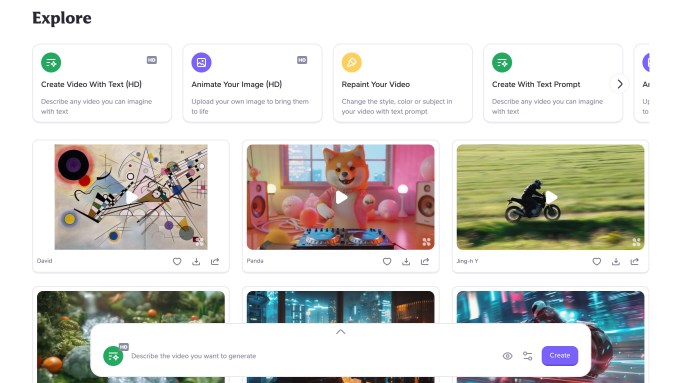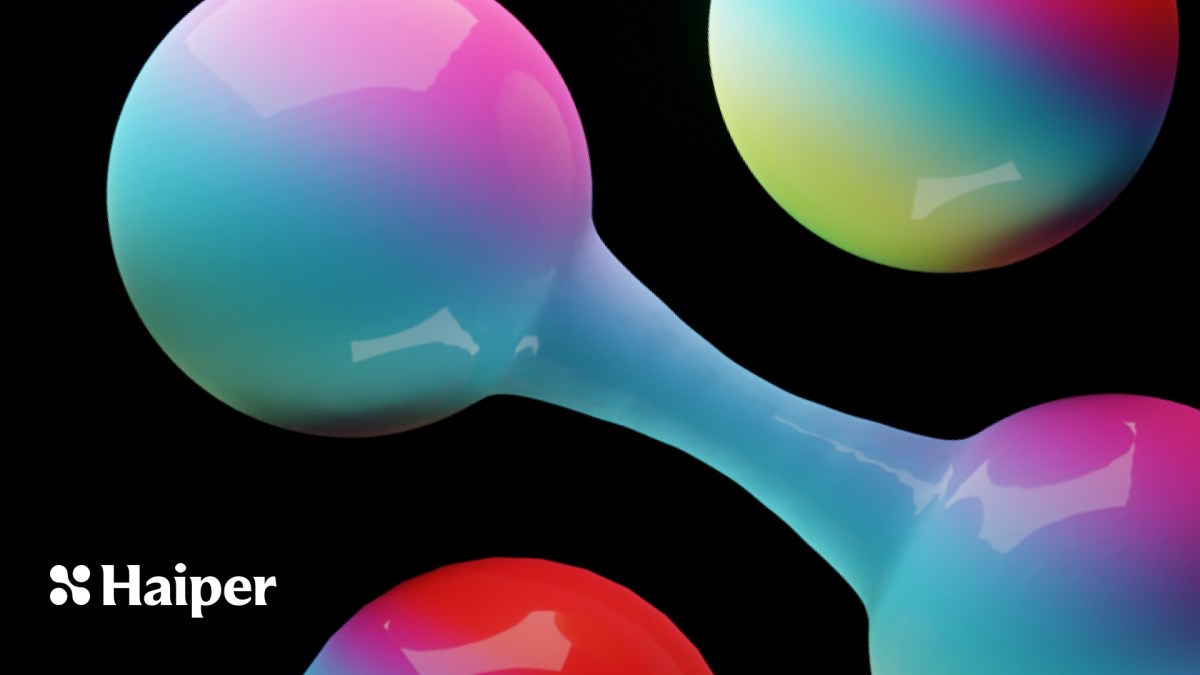AI-powered video generation is gaining momentum after OpenAI’s release of the Sora model last month. Yishu Miao and Ziyu Wang, both ex-Deepmind employees, have launched their video generation tool Haiper with its own AI model.
Miao, formerly of TikTok’s Global Trust & Safety team, and Wang, a research scientist at Deepmind and Google, started working on Haiper in 2021 and officially incorporated it in 2022.
With a background in machine learning, the duo initially focused on 3D reconstruction using neural networks but later shifted to video generation, leading to the creation of Haiper about six months ago.
Haiper secured $13.8 million in a seed round led by Octopus Ventures with participation from 5Y Capital. Previously, angel investors like Geoffrey Hinton and Nando de Freitas helped raise a $5.4 million pre-seed round in April 2022.
Video Generation Service
Haiper allows users to create videos by entering text prompts on their website. However, there are limitations on video length and quality, with users able to generate either a two-second HD video or a slightly lower-quality four-second video.

Image Credits: Haiper
Haiper’s website also offers features like image animation and video repainting in different styles. The company plans to introduce additional capabilities, such as extending videos, in the future.
Miao emphasized the company’s commitment to keeping these features free to foster a community. While exploring potential commercial applications with partners like JD.com, Haiper strives to provide value to its users through innovative video generation technologies.
Using the original Sora prompts, a sample video was generated by Haiper, showcasing the platform’s creative capabilities.
Building a Core Video Model
While Haiper is currently focused on its consumer-facing website, the company aims to develop a core video generation model that could be shared with others. The specifics of the model have not been disclosed publicly.
Miao mentioned reaching out to developers privately to test their closed API, emphasizing the importance of feedback in rapidly evolving the model. Haiper is also considering open-sourcing its models to promote exploration of various use cases.
The CEO highlighted the significance of addressing the “uncanny valley” problem in video generation, focusing on enhancing the realism of AI-generated figures to create more engaging content.
Haiper currently employs around 20 people and is actively recruiting for engineering and marketing positions to support its growth.
Competition Landscape
Amidst competitors like OpenAI’s Sora, Google, Nvidia-backed Runway, and others, Haiper aims to differentiate itself through a robust video generation model. Partner Rebecca Hunt from Octopus Ventures believes Haiper has the potential to lead the industry with its innovative approach.
Investors are keen on supporting AI-powered video generation startups, with a focus on enhancing technology and user experiences. The industry awaits a breakthrough moment akin to the evolution of language models like GPT-2 into mainstream applications.


